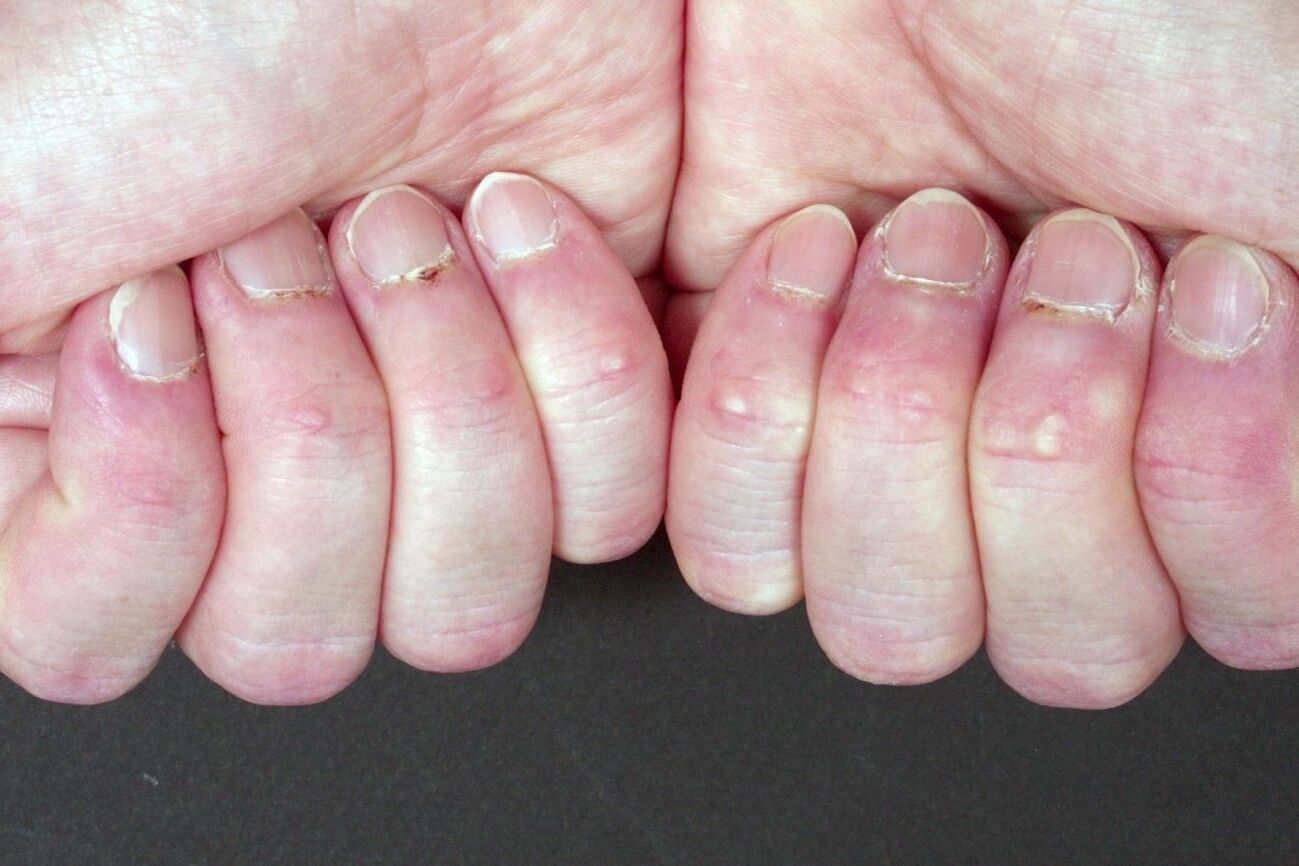
Collagen disorders are genetic conditions that mess with the body's most abundant protein—collagen. This protein is crucial for keeping skin, bones, tendons, and cartilage strong and flexible. When collagen goes haywire due to gene mutations, it can lead to a range of health issues. Imagine having brittle bones, stretchy skin, or joints that move too much. These are just a few symptoms people with collagen disorders might face. From Osteogenesis Imperfecta to Ehlers-Danlos Syndrome, these conditions can vary widely in severity. Understanding collagen's role in the body helps us grasp why these disorders can be so impactful.
Key Takeaways:
- Collagen disorders are genetic conditions caused by mutations in collagen genes, affecting skin, bones, joints, and connective tissues. Understanding their causes and symptoms can lead to early diagnosis and management for better health.
- Collagen is crucial for skin, joint, bone, and muscle health. Lifestyle factors, such as smoking and sun exposure, can impact collagen production. Research on collagen's potential in cosmetics and treatments is ongoing.
What Are Collagen Disorders?
Collagen disorders, also known as collagenopathies, are genetic conditions caused by mutations in collagen genes. These disorders can affect various parts of the body, including skin, bones, joints, and other connective tissues.
-
Definition of Collagen Disorders: Collagenopathies are genetic disorders resulting from mutations in collagen genes. These mutations disrupt the normal structure and function of connective tissues.
-
Types of Collagen: There are 28 known types of collagen. Type I collagen is the most abundant, found in skin, bones, tendons, and ligaments. Type II collagen is mainly in cartilage.
-
Collagen Structure: Collagen is made up of amino acids glycine, proline, and hydroxyproline. These amino acids form three strands, creating the triple-helix structure characteristic of collagen.
-
Functions of Collagen: Collagen provides structural support to tissues and plays roles in tissue repair, immune response, cellular communication, and migration.
Causes and Symptoms of Collagen Disorders
Understanding the causes and symptoms of collagen disorders can help in early diagnosis and management.
-
Causes of Collagen Disorders: Mutations in collagen genes primarily cause collagen disorders. These mutations lead to abnormal collagen proteins, disrupting connective tissue function.
-
Symptoms of Collagen Disorders: Symptoms vary depending on the disorder type. Common symptoms include joint pain, skin fragility, and weakened muscles. Severe cases can lead to conditions like osteogenesis imperfecta and Ehlers-Danlos syndrome.
Specific Collagen Disorders
Some collagen disorders are more well-known due to their distinct symptoms and impacts on health.
-
Osteogenesis Imperfecta (OI): OI is a genetic disorder characterized by brittle bones that break easily. It is caused by mutations in the COL1A1 or COL1A2 genes, which code for type I collagen.
-
Ehlers-Danlos Syndrome (EDS): EDS is a group of disorders affecting connective tissues. It is caused by mutations in genes coding for collagen, particularly type III collagen. EDS can lead to skin hyperextensibility, joint hypermobility, and tissue fragility.
Collagen and Its Role in the Body
Collagen is essential for various bodily functions, from maintaining skin elasticity to supporting bone health.
-
Collagen XVIII and Endostatin: Collagen XVIII is involved in forming the blood-brain barrier. It contains an endostatin domain with anti-angiogenic properties. Mutations in the COL18A1 gene can cause Knobloch syndrome, characterized by retinal detachment and eye abnormalities.
-
Collagen IV and Matricryptins: Collagen IV is found in the basement membrane, supporting epithelial cells. Matricryptins are fragments of collagen IV with specific functions in the extracellular matrix, such as inhibiting angiogenesis and tumor growth.
Collagen Treatments and Supplements
Collagen has been explored as a potential treatment for various conditions and is available in supplement form.
-
Collagen Treatment for Comorbid Diseases: Collagen has been studied as a treatment for diseases like rheumatoid arthritis, osteoarthritis, osteoporosis, psoriatic arthritis, and sarcopenia. Supplements can improve joint health, reduce inflammation, and promote bone regeneration.
-
Collagen Supplements: Collagen supplements are popular for improving skin health, reducing joint pain, and enhancing muscle mass. However, more large-scale studies are needed to fully understand their effects.
-
Dietary Sources of Collagen: Collagen can be obtained from chicken skin, fish skin, and bone broth. Bone broth is made by simmering animal bones in water, extracting collagen proteins into the broth.
Lifestyle Factors and Collagen
Certain lifestyle factors can affect collagen production and degradation, impacting overall health.
-
Lifestyle Factors Affecting Collagen Production: Smoking, excessive alcohol intake, and sun exposure can degrade collagen and accelerate skin aging. Smoking damages collagen fibers, while excessive drinking reduces collagen production.
-
Glycation and Collagen: Glycation occurs when sugar molecules bind to collagen fibers, causing them to cross-link and tangle. This reduces collagen's elasticity and contributes to premature aging.
Collagen in Health and Disease
Collagen plays a crucial role in various health aspects, from skin aging to wound healing.
-
Collagen in Skin Aging: Collagen loss contributes to skin aging. As people age, their bodies produce less collagen, leading to wrinkles, dry skin, and sagging.
-
Collagen and Joint Health: Collagen is essential for healthy joints, providing structural support and maintaining joint lubrication. Joint pain and stiffness can occur when collagen levels drop.
-
Collagen in Bone Health: Collagen supports bone health by providing structural support and facilitating bone regeneration. Osteoporosis can be treated with collagen-based therapies that promote bone density and strength.
-
Collagen and Muscle Mass: Collagen is important for muscle mass and strength. Sarcopenia, characterized by age-related muscle loss, can be influenced by collagen levels.
-
Collagen in Wound Healing: Collagen is crucial for wound healing, providing a scaffold for new tissue growth and maintaining tissue integrity. Collagen-based materials are used in treating wounds, burns, and diabetic ulcers.
Collagen in Cosmetics and Research
Collagen is used in cosmetics and is a subject of ongoing research to understand its full potential.
-
Collagen-Based Cosmetics: Cosmetics companies use collagen in products like moisturizers and serums due to its moisturizing properties. However, there is limited scientific evidence to support the claim that these products boost collagen levels in the skin.
-
Regulation of Collagen Supplements: The FDA does not regulate collagen supplements, meaning manufacturers do not have to prove their efficacy or safety. Look for keywords like collagen hydrolysate, hydrolyzed collagen, or collagen peptides to ensure high-quality products.
-
Collagen Research and Development: Research into collagen is ongoing, with scientists exploring new tools to identify binding partners of collagen proteins. Techniques like surface plasmon resonance imaging and proteomics workflows help decipher collagen functions.
-
Collagen in Animal Models: Animal models, such as mice, are used to study collagen disorders. Studies measure hydroxyproline levels as a proxy for collagen content in tissues, providing reference points for understanding human collagen disorders.
-
Future Directions in Collagen Research: Understanding how collagens work with extracellular and cell-surface partners requires a global approach. Defining collagen domain structures and functions will provide new insights into collagen fibril functions and their modulation in diseases. Interaction data on collagens and other extracellular biomolecules are stored in databases like MatrixDB, used to build interaction networks and make functional hypotheses.
Final Thoughts on Collagen Disorders
Collagen disorders, or collagenopathies, stem from mutations in collagen genes, impacting various body parts like skin, bones, and joints. These disorders can lead to conditions such as osteogenesis imperfecta and Ehlers-Danlos syndrome, causing symptoms like joint pain, skin fragility, and brittle bones. Collagen's role in wound healing, bone health, and joint health is undeniable, making it a focal point in medical research. While collagen supplements and dietary sources like bone broth offer potential benefits, more research is needed to confirm their efficacy. Lifestyle choices, including smoking and sun exposure, can degrade collagen, accelerating aging. Understanding collagen's structure and function is crucial for developing effective treatments. Ongoing research aims to unlock new insights into collagen's role in health and disease, offering hope for better management of collagen disorders in the future.
Frequently Asked Questions
Was this page helpful?
Our commitment to delivering trustworthy and engaging content is at the heart of what we do. Each fact on our site is contributed by real users like you, bringing a wealth of diverse insights and information. To ensure the highest standards of accuracy and reliability, our dedicated editors meticulously review each submission. This process guarantees that the facts we share are not only fascinating but also credible. Trust in our commitment to quality and authenticity as you explore and learn with us.


